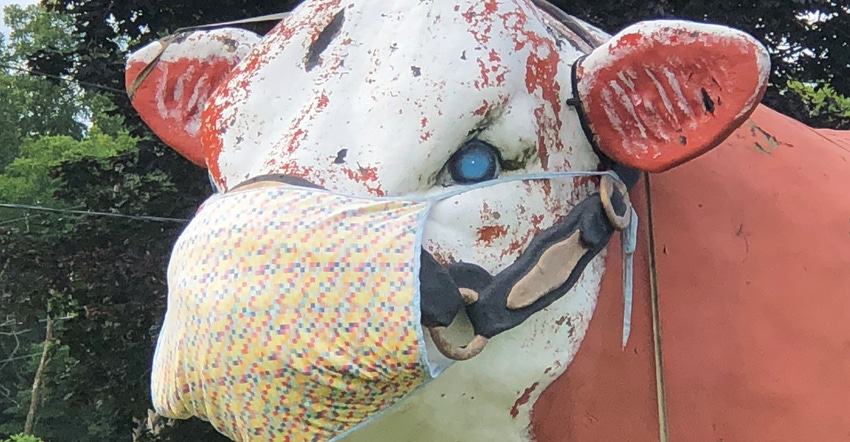August 31, 2020

Do you believe in science?
Do you believe science is not static and that opinions and practices change with new discovery?
With COVID-19, we are being tested every day by reports in the news. These stories just scratch the surface of what is being studied about the virus. For example, when the pandemic first broke in the U.S., scientists and experts said masks wouldn't protect you from COVID-19.
Related: Complete coronavirus coverage
As research examined droplets, physical distance and the amount of time you spent in an enclosed space with others, science now says masks, in general, can help. Research on virus testing and vaccines continues at a pace not seen before in modern times.
Being in the news business, I read a lot — online and on paper. Recently, however, I’ve started listening to a podcast — suggested by a dairy farmer who listens while she milks cows — called "This Week in Virology," fondly known to followers simply as TwiV.
Anything — and I do mean anything — pertaining to COVID-19 comes up on this podcast. Hosted by virologist Vincent Racaniello, a professor at Columbia University Medical Center, the podcast provides a regular panel of virologists and occasional guests who have informal, informative conversations about viruses.
They read and comment on current research, offering opinions on where the science was strong or weak. They read and answer letters from listeners — an important, entertaining component of every podcast.
Sometimes, I listen and wondered, "What are they talking about?" as they really get into the weeds of research. And other times, I am left in awe of the science that I just learned about and think how cool!
Here is a brief sample of topics discussed this summer:
urban and rural myths associated with COVID-19
rapid testing with paper $1 test strips — a “lick test”
sacrificing testing sensitivity for testing speed
why hydroxychloroquine does not work for treating COVID-19
how two Tennessee surgeons led an effort that rallied an assortment of small businesses (cake box company, car carpet company) to develop personal protection equipment
fever checks aren’t reliable indicators of COVID-19, but testing is.
coronaviruses are highly recombinogenic — having “viral sex” — shuffling bits of RNA and making analysis very difficult
viruses have circulated for decades. HIV was percolating in 1969. COVID-19 has been cooking in bats for decades before spilling over into humans.
disinfecting objects or materials do not transmit COVID-19 infection. Droplets do.
As if learning about viruses isn’t enough, really get your inner science geek going with "This Week in Microbiology," known as TwiM. Anything bacterial is the focus on these podcasts. Recent discussions covered everything from arsenic contamination of groundwater to the impact of processed sugar on oral cavity micro biomass to the smell of soil.
Interested in learning more? Check out TWiV at www.microbe.tv/twiv/.
You May Also Like




